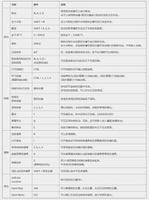使用numpy为RNN准备数据的最快方法是什么?
我目前有一个(1631160,78) NP阵列作为我的神经网络输入。我想尝试使用需要3D结构作为输入数据的LSTM。我目前使用下面的代码来生成所需的3D结构,但它超级慢(ETA> 1day)。有没有更好的方式与numpy做到这一点?使用numpy为RNN准备数据的最快方法是什么?
我当前的代码生成数据:
def transform_for_rnn(input_x, input_y, window_size): output_x = None
start_t = time.time()
for i in range(len(input_x)):
if i > 100 and i % 100 == 0:
sys.stdout.write('\rTransform Data: %d/%d\tETA:%s'%(i, len(input_x), str(datetime.timedelta(seconds=(time.time()-start_t)/i * (len(input_x) - i)))))
sys.stdout.flush()
if output_x is None:
output_x = np.array([input_x[i:i+window_size, :]])
else:
tmp = np.array([input_x[i:i+window_size, :]])
output_x = np.concatenate((output_x, tmp))
print
output_y = input_y[window_size:]
assert len(output_x) == len(output_y)
return output_x, output_y
回答:
下面是使用NumPy strides向量化的output_x建立一个办法 -
nrows = input_x.shape[0] - window_size + 1 p,q = input_x.shape
m,n = input_x.strides
strided = np.lib.stride_tricks.as_strided
out = strided(input_x,shape=(nrows,window_size,q),strides=(m,m,n))
采样运行 -
In [83]: input_x Out[83]:
array([[ 0.73089384, 0.98555845, 0.59818726],
[ 0.08763718, 0.30853945, 0.77390923],
[ 0.88835985, 0.90506367, 0.06204614],
[ 0.21791334, 0.77523643, 0.47313278],
[ 0.93324799, 0.61507976, 0.40587073],
[ 0.49462016, 0.00400835, 0.66401908]])
In [84]: window_size = 4
In [85]: out
Out[85]:
array([[[ 0.73089384, 0.98555845, 0.59818726],
[ 0.08763718, 0.30853945, 0.77390923],
[ 0.88835985, 0.90506367, 0.06204614],
[ 0.21791334, 0.77523643, 0.47313278]],
[[ 0.08763718, 0.30853945, 0.77390923],
[ 0.88835985, 0.90506367, 0.06204614],
[ 0.21791334, 0.77523643, 0.47313278],
[ 0.93324799, 0.61507976, 0.40587073]],
[[ 0.88835985, 0.90506367, 0.06204614],
[ 0.21791334, 0.77523643, 0.47313278],
[ 0.93324799, 0.61507976, 0.40587073],
[ 0.49462016, 0.00400835, 0.66401908]]])
这将创建一个查看输入数组,正如我们所记忆的那样e高效。在大多数情况下,这应该转化为对性能的好处,而且涉及到进一步的操作。让我们来验证它的一个观点确实 -
In [86]: np.may_share_memory(out,input_x) Out[86]: True # Doesn't guarantee, but is sufficient in most cases
另一个肯定拍的方式来验证是设置一些值output和检查输入 -
In [87]: out[0] = 0 In [88]: input_x
Out[88]:
array([[ 0. , 0. , 0. ],
[ 0. , 0. , 0. ],
[ 0. , 0. , 0. ],
[ 0. , 0. , 0. ],
[ 0.93324799, 0.61507976, 0.40587073],
[ 0.49462016, 0.00400835, 0.66401908]])
以上是 使用numpy为RNN准备数据的最快方法是什么? 的全部内容, 来源链接: utcz.com/qa/261160.html






